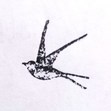Writing What You *Don’t* Know
I find myself faced with an interesting writing challenge over the next two weeks: writing in detail about something I’ve made up. An upcoming something, in fact.
Now obviously I do this a lot, to a lesser degree: if you read this blog at all then you’ll have seen me waxing lyrical about my inspirations and working processes for various stories and books. But this time is different. This time, I can’t just talk about the overall vibe and emotions of the story, though they will of course be important.
This time, I have to talk about… science.
Despite all the SF that I write, I am not a scientist. I am a historian. And I do still write plenty of history for work: telling the stories of real people is still very much within my wheelhouse, even this many years after I actually studied it. But that’s still telling stories, even if it’s not fiction. This will be different. This time I actually need to make some degree of sense, which means doing a lot of checking of the research that went into the original story all that time ago. I’m fairly sure that there was some scientific fact buried underneath all the other stuff. I certainly hope there was.
I’ll see how that goes, anyway: said writing won’t be directly posted here, but I will be sure to link it so you lot can read it too. But as I get started on writing this up, it makes me consider just how important I think writing like this is: not just writing fiction but writing about the writing of it.
When I’m actually writing, I’m often not thinking consciously at all about why I’m using the words I am, why I’m constructing a character or environment in a particular way. So much is instinctual or subconscious for me. I can look back at a piece and find completely unexpected themes which I’ve accidentally been building on, even when I might have been deliberately leaning towards a different moral or outcome. It’s one of the reasons that I end up so often, in my longer works, having to go back and restructure the beginning to match what the end became: if I’m writing a piece for long enough then I have the opportunity to notice those themes starting to evolve and adjust my later words accordingly.
Storytelling is largely organic for me: I’ve talked before about how I liken it to hacking through a jungle, perhaps with a destination in mind but no precise idea what might be hiding behind the next stand of ferns. So looking back at the journey and thinking about why I made those choices, essentially analysing my own work (thank you, A-Level English Literature) is an immensely profitable thing for me as a writer. I’m never going to improve as a writer unless I can understand what made a story good.
So this article I’m writing will be a very useful one. I already think that the story in question is one of my best works. But doing this will hopefully help me understand why – and as it’s a lot more ‘factual’ than what I normally write, hopefully help me get better at incorporating actual science and all that jazz into my future stories.
It’s always a learning experience, this writing thing – whether that’s the research, or the writing itself.



